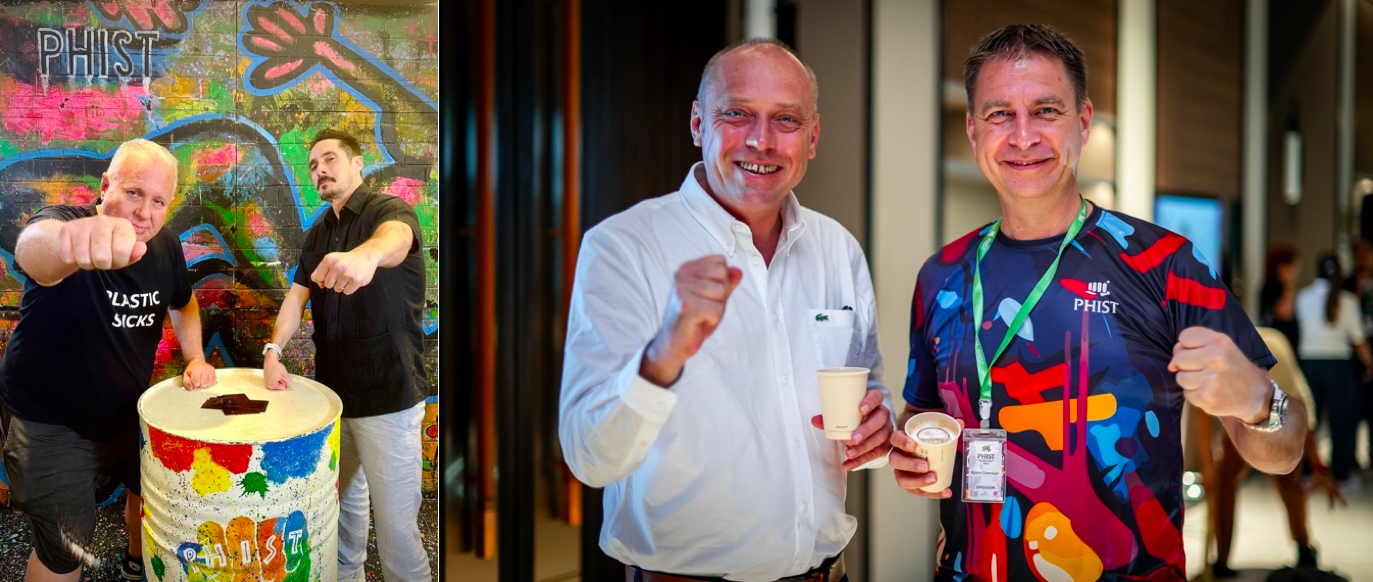The post Hotels want to influence Sustainability and grasp “The Green Premium”: PHIST appeared very first on TD (Travel routine Media) Travel Daily Media.

 Hotels and resorts around Southeast Asia tend to be failing woefully to comprehend the “green advanced” and how to leverage it to attract quality friends, according to leading figures when you look at the region’s hospitality industry. The message that accommodations and resorts are falling behind alternatives various other areas of the globe when it comes to taking advantage of the advantages related to renewable tourism had been among the major takeaways from PHIST (Phuket Hotels for isles Sustaining Tourism), Southeast Asia’s largest sustainability forum, held recently at SAii Laguna in which over 1,000 members collected.
Hotels and resorts around Southeast Asia tend to be failing woefully to comprehend the “green advanced” and how to leverage it to attract quality friends, according to leading figures when you look at the region’s hospitality industry. The message that accommodations and resorts are falling behind alternatives various other areas of the globe when it comes to taking advantage of the advantages related to renewable tourism had been among the major takeaways from PHIST (Phuket Hotels for isles Sustaining Tourism), Southeast Asia’s largest sustainability forum, held recently at SAii Laguna in which over 1,000 members collected.
“Hotel designers in Southeast Asia have actually broadly neglected to make sustainably essential because they do in European countries or North America. It’s a huge disconnect,” said Bill Barnett, managing manager of hospitality and real-estate consultative team C9 Hotelworks, co-organiser of PHIST, along with Greenview and Phuket Hotels Association.

Other specialist speakers at PHIST included celebrity designer Bill Bensley and KP Ho, the founder and manager president of Banyan Tree Holdings and Laguna Resorts and Hotels—urged resort proprietors to become more cognizant associated with the wider benefits connected with renewable tourism.
By pioneering green or aware practices ranging from waste administration and energy preservation to farm-to-fork food, sourcing organic produce from regional farmers, and much better community engagement, hotels can improve prices and build goodwill. In performing this, they are able to additionally boost their interest consumers just who spot reasonably limited price on experiences that are ethical, lasting, and — perhaps many importantly—unique.
Jesper Palmqvist, STR Global’s region Director for Asia Pacific, hosted a roundtable at PHIST in which numbers from top resort brands such as for example Six sensory faculties and Soneva talked about environmental recommendations dancing. He agreed your hospitality business in Southeast Asia needs to be much more proactive about enacting meaningful modifications.

It’s crucial the industry develops green champions, best training papers and instruction modules which can be altered by motels,” he stated. “Furthermore, hotels must be forced into rewarding intercontinental sustainability certification. This would show even more aspiration to look at brand-new requirements concerning the environment and therefore stay prior to the curve.”
Other conversations about how to seize the opportunities afforded by sustainable tourism were towards the fore as a number of the biggest brands in the region’s hospitality industry collected for PHIST. KP Ho was instrumental within the transformation of Laguna Phuket from a barren moonscape of scarred land—abandoned because of the tin mining business and declared as uninhabitable because of the UN—into Southeast Asia’s leading incorporated resort development.
Bill Bensley features helped curate a few of Asia’s many charismatic lasting tourism experiences. His Shinta Mani crazy in Cambodia, for instance, offers luxury, tented accommodation while using the funds to preserve its surrounding personal nature sanctuary from poaching, mining, and logging. The “green advanced” and how to sway it was just one of many topics up for discussion as of this year’s PHIST, which showcased 16 interactive workshops and over 30 exhibitors.
 Workshop conversation covered dilemmas such as the circular renewable economic climate, green resort financial loans, and start-up resources, glamping, farm-to-table food, ecological hospitality design, data, and dimension, greentech innovation, advertising and marketing lasting motels, water preservation, lasting health and much more. Right preceding PHIST, outdoor accommodation professionals gathered and decided the synthesis of the Asia Pacific Outdoor Lodging Association (APOLA), a trade human body set up to guide, advertise and build the introduction of the outdoor lodging industry in the area since it expands.
Workshop conversation covered dilemmas such as the circular renewable economic climate, green resort financial loans, and start-up resources, glamping, farm-to-table food, ecological hospitality design, data, and dimension, greentech innovation, advertising and marketing lasting motels, water preservation, lasting health and much more. Right preceding PHIST, outdoor accommodation professionals gathered and decided the synthesis of the Asia Pacific Outdoor Lodging Association (APOLA), a trade human body set up to guide, advertise and build the introduction of the outdoor lodging industry in the area since it expands.
APOLA’s mission is to assist determine the standards the area, raise awareness, develop an accounting system for task funding and teach the industry concerning the features of this lower impact, renewable hospitality model.
The post resorts want to influence Sustainability and grasp “The Green Premium”: PHIST showed up initially on Travel Regular Media.
Supply link

